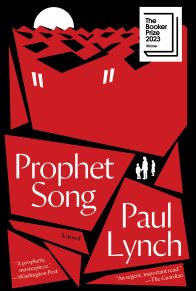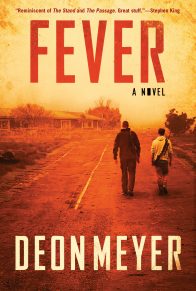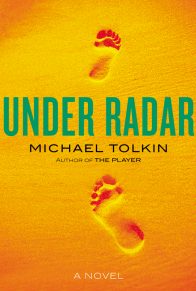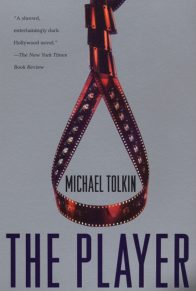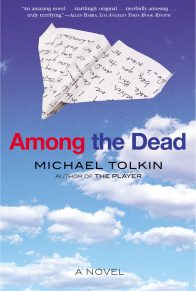“Michael Tolkin is a soothsayer, an early reader of our psychological topography, and his new book, NK3, is either the last great Hollywood novel or the first great book of Burning Man. In Tolkin’s post-apocalyptic, nanobacterium-plagued near future, the HOLLYWOOD sign presides over a Los Angeles that struggles to carry on in a world where people’s memories have been destroyed . . . A strangely terrifying if celebratory novel of remnants, fragments, the nag of one’s inner voice, and dim reminders of the dissolve that has become America.” —A. M. Homes, Vanity Fair
“Michael Tolkin is one of America’s greatest living novelists—and way too under-appreciated . . . [NK3] is an astonishing tour de force, in which he’s created a language for a people who have lost the foundations of language–memory, history, identity–after what seems to be a North Korean chemical weapons attack that got out of control . . . The deep sadness conveyed by the book, sadness for the traumatic loss, as well as the joy in the language and in the characters’ struggle, struck me as something like a psalm. NK3 is a great novel.” —Lee Smith, Weekly Standard
“In his new novel, the ingenious dystopian thriller NK3, Tolkin is back with a Los Angeles populated by mindless creatures who live for sex and drugs. Indeed, it’s a world in which almost everyone has lost their mind . . . The novel is clever entertainment about a disaster that won’t happen.” —Patrick Anderson, Washington Post
“An original and absorbing novel–written in clear, rich prose—that imagines a post-apocalyptic Los Angeles where dystopia is fine-tuned to our present turmoil . . . It is hard to imagine a better writer to conjure a vision of a demolished and encaged Los Angeles than Tolkin. As a filmmaker and novelist, Tolkin has been well tuned to the culture and zeitgeist of this most illusory and decadent of American cities . . . This is a novel that thrives on pure vision. The plot flows well, and its vivid characters and ideas make it an immersive experience . . . I read parts of the novel while riding the Metro, and its rendering of post-apocalyptic Los Angeles is so vivid that I could see the world of the novel in these streets and neighborhoods whenever I looked up . . . NK3 harkens back to a classic SF tradition while feeling fresh and modern. Tolkin creates memorable images and searing moments and peppers the text with sly, dark humor, all while raising provocative social and political issues. Like the novels of China Miéville or Philip K. Dick, the fantastic is combined with a lucid social conscience . . . The real power of NK3, as with most great SF, is that the novel is more about the present than the future. It taps into our psyche, here and now, in an emerging age in which reality is becoming increasingly distorted . . . NK3 is nightmare and satire, thriller and warning. Crafted by a master storyteller, it is a haunting parable about civilization marching forward, while forgetting what it leaves behind.” —Alci Rengifo, Los Angeles Review of Books
“What happens to a great American city when its reality is forcibly divorced from its inhabitants’ memories? In Michael Tolkin’s darkly satirical new novel, the release of an amnesia-inducing North Korean bio-agent turns near-future Los Angeles into a divided metropolis, one where the elite live in hedonistic luxury, protected from the more seriously brain-damaged by a 60-foot fence. NK3 presents a kaleidoscopic portrait of post-apocalyptic La La Land . . . with flashes of antic wit and honestly earned compassion . . . Confronted by names like ‘AutoZone,’ ‘Go Bruins’ and ‘madeinusa,’ many readers will need help keeping track of everybody. But the names also remind one of how easily people are turned into commodities, how slippery the grip on identity can be, how there’s always someone ready to set themselves up as the savior of civilization. Just because someone is known as ‘Chief’ doesn’t mean he can keep his followers fed forever. At a time of alternative facts and a bend toward cultural amnesia, NK3 feels especially prescient.” —Michael Berry, San Francisco Chronicle
“In this brave, brilliant and barely speculative novel, the population of Greater Los Angeles is wracked with varying degrees of amnesia, the social order is switched to favor those with technical skill, and expendable Drifters and Shamblers are dumped in the desert to die a “gentler” death once they’ve outlived their usefulness. Part cartoon and part allegory, it’s tempting to call NK3 the first book of the Trump era.” —Chris Kraus, author of I Love Dick and Summer of Hate
“A dire tale that examines the role memory plays in thriving versus merely surviving in the post-apocalyptic Los Angeles of the near future.” —Michael Silverblatt, KCRW “Bookworm”
“Tolkin’s mad world of imbeciles and cast-offs bears a cruel resemblance to our own, yet he approaches it kindly, with mournful pity. An inspired speculative satire, wickedly stimulating but soulful, too. It got to me, this novel. I just can’t shake it.” —Walter Kirn, author of Up in The Air and Blood Will Out
“There is an oft quoted line in Milan Kundera’s Book of Laughter and Forgetting which proposes that ‘the struggle of man against power is the struggle of memory against forgetting.’ This is precisely the moral universe that preoccupies NK3. We are in danger of forgetting how to resist. NK3 lives on many levels: as dystopian Los Angeles thriller, as metaphor for a culture shredding its own relationship to fact and memory, and as razor-wire meditation on the loss of the self—that constantly murmuring life-force tugging us hither and yon from within and ever evading our grasp. As an existentialist horror story, NK3 tautly proposes a future that now, in post-factual America, seems closer than ever. Michael Tolkin’s map of Los Angeles gains more and more detail with each novel, because there is no more modern, chaotic and beautiful place in which to lose yourself and your history to winds, fires, and opulent decay.” —Jon Robin Baitz, the writer of Other Desert Cities
“Award-winning writer, director, and producer Tolkin presents a post-apocalyptic examination of near future Los Angeles . . . Tolkin’s use of language evokes in the reader the feelings of confusion and mistrust experienced by the survivors. Readers looking for something reminiscent of World War Z and Cory Doctorow’s work should give this one a try.” —Booklist





